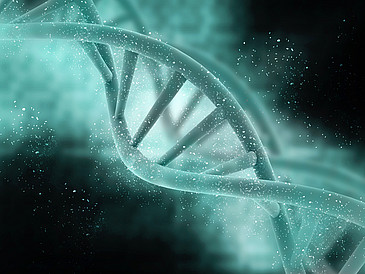Our genes influence our level of religious belief and how often our daily life is determined by religious practices. In a meta-analysis of all twin and family studies on religiousness since 1999, this assumption was able to be confirmed. Moreover, new insights into the interplay between disposition and environment during the development of religiousness over the lifespan were gained, as ChristianKandler, Professor of Psychology at the University of Bremen explains: “Genetic differences only unfold during the course of development.
And family-external, experience-dependent differences in religiousness that are strongly influenced by the social environment, for example by life partners, take effect increasingly over the course of life. At the same time, the influence of the family of origin decreases with age.” It is especially the religiousness of life partners that seems to play a significant role with regard to one’s own religiousness as an adult. Partnership similarities concerning religious beliefs and daily practices appear to suggest this.
Youths Are Susceptive to Radical Views – Regardless of Their Home
The trend is particularly visible in the first third of life and means that with increasing autonomy and separation from home, individual characteristics and preferences concerning religious beliefs and daily practices come more to the fore. If these individual characteristics are genetically determined, it is visible in the fact that the genetic influence on observed differences grows during development. “These genetic differences are most probably passed on by means of relevant personality traits, such as trustworthiness and tolerance,” says Professor Kandler.
That the influence of family additionally decreases, whilst the influence of other important contact persons becomes more important “can provide explanations for why some young people find radical religious beliefs appealing, despite the religious background of their family of origin not fitting with this.”
The findings also match with general observations “that more and more young people are turning away from traditional practices and outdated religious beliefs and ideals, and are even separating themselves from their family-based religious confession or are even reinterpreting it,” states the researcher.
Further Information:
https://www.uni-bremen.de/en/pppd
https://doi.org/10.1016/j.copsyc.2020.09.011
Contact:
Prof. Dr. ChristianKandler
Personality Psychology and Psychological Assessment
Faculty of Human and Health Sciences
University of Bremen
Email: ckandlerprotect me ?!uni-bremenprotect me ?!.de
Phone: +49 421 218-68770

